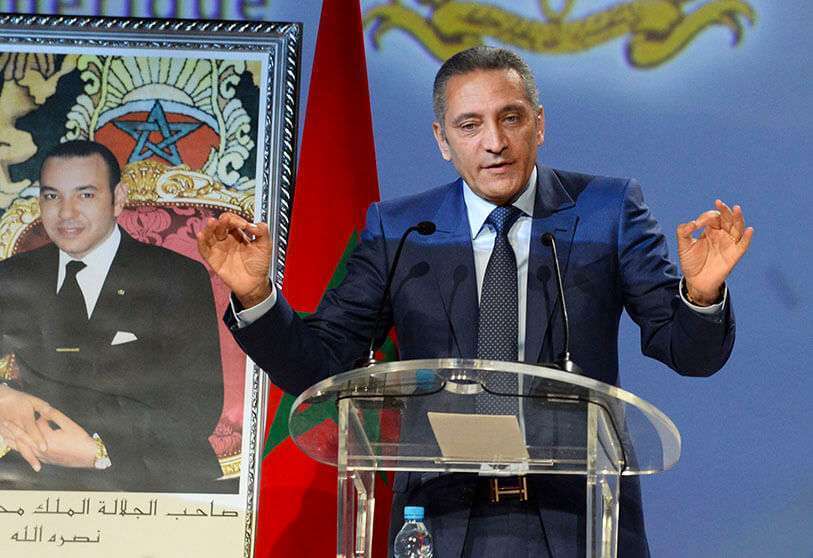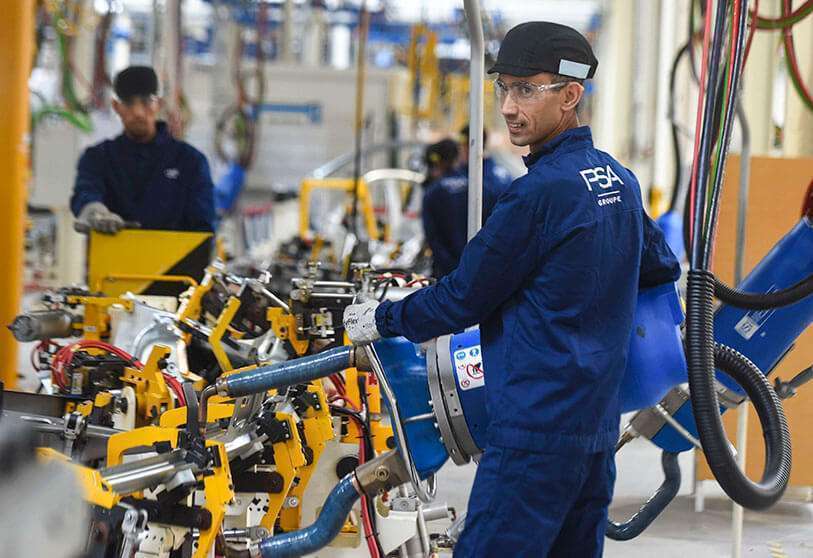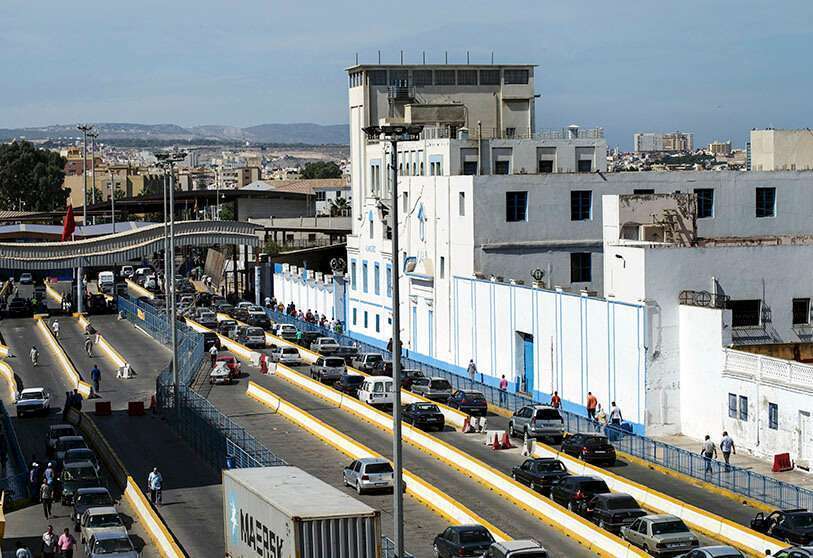Las nuevas oportunidades para Marruecos en la era post-coronavirus

The changes that the world economy is undergoing and the scenario that is being drawn opens up new opportunities for Morocco. "The pandemic has demonstrated the vulnerabilities of long supply chains. There is going to be a shift from the most remote areas to the perimeter ones. European industry is already thinking of much shorter and more reliable chains. And Morocco, due to its geographical situation and stability, is going to be one of the places that will benefit most from the process", assures Atalayar Andrés Martínez, head of the Department of Bilateral Trade and Public Markets of the Economic and Commercial Office of Spain in Rabat. This is what analysts and the Moroccan administration itself believe.
"The Moroccan economy will experience difficulties and changes in its composition. But there are great opportunities to be seized", announced the Moroccan Minister for Industry, Moulay Hafid Elalamy, on 30 April at a parliamentary committee. "The opportunities that are opening up at the moment for Morocco were not possible during the last 50 years," he said. The minister, who assures that his department is already working in the post-COVID-19 era and looking for new markets, gave a clear example: international companies that used to produce in China or import from the Asian giant are starting to think about diversifying their suppliers, the local newspaper L'Économiste echoed.
A major boost to Moroccan interests in this new scenario came at the end of last month, when the Council of the European Union gave its approval to reforms of the business regime and free zones in Morocco. A firm step towards the definitive exit of the neighbouring country from the EU's grey list of tax havens, scheduled for October this year. According to a note from the Moroccan Ministry of the Economy dated 5 May, the European opinion "confirms the credible and calm progress of the reforms carried out by Morocco in fiscal matters and the effectiveness of cooperation and negotiation with the EU and its institutions".

In the new scenario, Spain, because of its proximity and the knowledge and experience of our companies, is called to play a leading role in Morocco in the new post-coronavirus era. "The bilateral relationship is going to benefit from these changes, since it is already a very short supply chain, which Morocco complements with its salary advantages and excellent logistics, in addition to its stability", anticipates the aforementioned analyst of Ofecomes in Rabat, Andrés Martínez.
In this sense, the former chief advisor of Ofecomes in Rabat, Luis Óscar Moreno, and the analyst Ana Fernández de Bobadilla expressed in the last issue of the economy magazine ICE in the article 'Challenges and opportunities of the European value chain in view of the new international economic order': "After the liberalisation agreement of industrial and agricultural goods, which came into force in 2012, economic exchanges between both countries doubled thanks to the insertion of the same productive supply chain. The Free Trade Agreement led to the creation of an economic link between Spain and Morocco based on complementarity and interdependence, which is especially relevant in the automotive sector".
"This new model, the authors continue, is based on Spain's 'upstream' participation in the supply chain, that is, Spain has specialised in the export of intermediate goods for the production of Moroccan exports. For its part, Morocco, which participates 'downstream' in the supply chain, has specialised in the export of finished goods to Spain". That is: there is more and more Spanish content in Moroccan exports. A reality that has clear manifestations in two sectors: the mentioned automotive sector -which has already started to retake, by the way, the activity in the neighboring country- and the agro-food sector. "The fact that, in the case of the agro-food sector, the same Spanish businessmen market Moroccan products strengthens their negotiating positions vis-à-vis the buyers", Martínez explains to Atalayar.
Ideas, finally, that Moreno and Fernández de Bobadilla had already anticipated in a work published in September 2019 with the title 'The future of the Spain-Morocco relationship: towards a Euro-Mediterranean value chain': "This bilateral [Spanish-Moroccan] supply chain is framed in the current economic and commercial context, dominated by protectionism and geopolitical tensions. As a result, global supply chains, born of the phenomenon of globalisation and the relocation of European and American multinationals, are currently undergoing a metamorphosis. The new economic and trade paradigm, which some call 'slowbalisation' or 'slowed-down globalisation', is causing the shortening of supply chains, which are increasingly becoming regional supply chains.
"In this context, the authors concluded, Morocco could become a booming southern production frontier complementary to that which already exists between Eastern Europe and Western Europe, provided that integration with the European Union is intensified, through the signing of a broad and deep free trade agreement. This would undoubtedly strengthen Spain's role as a complementary vector for the development of the regional EU-Morocco value chain, establishing a new bilateral axis of integration".
On the other hand, in a paper entitled 'Crise sanitaire COVID-19: des lueurs d'espoir au bout du tunnel' ('COVID-19 health crisis: glimmers of hope at the end of the tunnel' in Spanish), Attijari Global Research -the research centre of Attijariwafa, one of the main banks in Morocco-, dares to advance the sectors that will emerge strengthened from the health crisis: telecommunications, agri-food activities, modern distribution and precious metals. The financial institution believes that telecommunications will benefit from the increased use of mobile telephony and the need for operators to adapt to demand and maintain quality, as reflected in the digital medium Le360.

As far as agri-food activities are concerned, supply and demand will not change in the near future and the sector occupies a large part of the country's population. For the specialists of Attijari Global Research, this means that new export opportunities will arise as a result of the crisis and the importance of food safety for the large economies, along the lines explained throughout this text.
Furthermore, the Moroccan financial entity estimates that modern distribution will increase its penetration rate in the Moroccan market to 38%. The record levels recorded during the crisis predict more changes in consumer habits, says the note of the aforementioned digital. The document recalls the importance of the union of this sector with that of telecommunications. Finally, Attijariwafa's analysis points to the precious metals as one of the sectors that will stand out in the new phase due to the influence of the authorities' monetary policies, concerns about the solvency of the different states and the pressure of the mining supply due to the closures of polymetallic mines that have been deemed unprofitable.
Finally, a clear example of the new commercial and investment opportunities that are opening up to the Moroccan economy is that of health masks. With Europe desperate for masks, Moroccan industry - with 23 factories currently producing them - has been able to turn around in a few weeks and make enough of them to start exporting. Morocco, which manufactures ten million masks a day according to its authorities, is already preparing the first sales to France (although no other countries have been involved, the Ministry of Industry is talking about several buyers). This is a matter of pride for Moroccan society and authorities, and it has become omnipresent in the media of the neighbouring country in recent weeks. Pride for a moment, let's not forget, of widespread economic paralysis in the Moroccan situation and of black macro and microeconomic clouds on the horizon.
Meanwhile, Spain continues to consolidate its position as Morocco's main trading partner. Our country is for its southern neighbour both its first supplier market and its first customer. For Spain, the Moroccan market is the eighth in the world, the first in Africa and the second outside the European Union. A reality that was forged in 2012 when our country overtook France and is becoming more and more established.
In the January-February period -the last one for which official data are available-, the total of Spanish exports to Morocco reached a total of 1,473 million Euros and experienced a year-on-year growth of 8.69%, according to data from ICEX Spain Trade and Investment. As for Spanish imports from Morocco, they totalled 1,298 million euros in the first two months of 2020, marking a year-on-year growth of 11.59%. The coverage rate continues to be balanced and now stands at 113.5%. This trend demonstrates the growing complementarity and integration of the two economies.

By items, the most important Spanish exports by value are automotive components (14.4% of the total), fuels and lubricants (11.9%), fabrics for clothing (9.8%) and electrical material (5.8%). With regard to imports from Morocco, the first four places are occupied by electrical materials (29.5%), clothing (17.9%), molluscs and crustaceans (7.9%) and automotive components (7.7%).
In the set of sales from the EU to Morocco, Spain is also at the top with 36.3% of total EU exports, according to data provided by the Economic and Commercial Office of Spain in Rabat. It is followed by France with 23.1%, Germany with 9.0% and Italy with 7.2%.
However, the forecasts indicate that the next official figures of bilateral trade between Spain and Morocco - those corresponding to March - will already include the commercial slowdown derived from the health crisis. A trend that will be aggravated in the statistics of the following months despite the fact that the traffic of goods has been able to operate, in general, normally.
Despite the good data on bilateral trade and the increasing integration of the two economies, there are still areas of friction between Madrid and Rabat. One of them is the future of the Melilla customs office, framed in the problematic issue of the commercial relations of the neighbouring country with the two Spanish autonomous cities. Last May 5, it was important that the Spanish and Moroccan authorities should have held a meeting to discuss the customs office in Beni Enzar, next to the autonomous city of Melilla, which Rabat unilaterally closed in July 2018. But the health situation, Melilla Hoy reported from Europa Press, made Morocco decide to suspend 'sine die' the meeting, according to the Spanish government's answer to a parliamentary question.

The cancelled meeting was to bring together the director of the Spanish Customs and Special Taxes Department and the director of the Moroccan Customs. Both had already met on 13 September 2018 in Rabat and the working group set up to try and find a solution has since done the same in the cities of Malaga and Tangier. However, that group continues trying to "find a global and lasting solution" that interests both countries in order to " optimise the commercial clearance of goods by land", echoed the aforementioned newspaper from Melilla.








